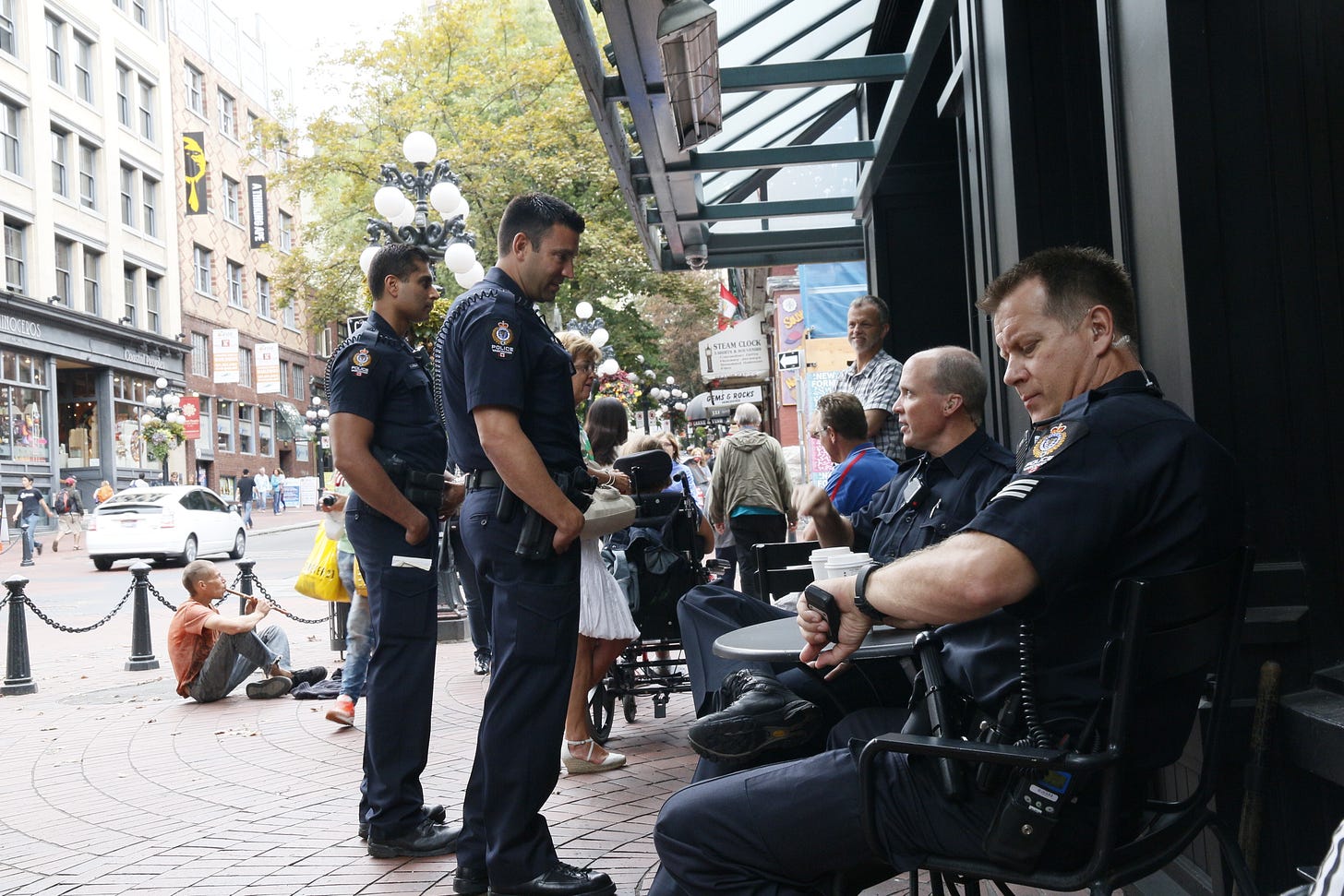‘Recriminalization’ is part of a deathly policy maze designed to kill people who use drugs: P.O.W.E.R.
Hearings for the legal challenge against recriminalization are open to the public from July 21st through July 23rd

A legal challenge to the federal government’s decision to amend British Columbia’s decriminalization framework – at the province’s request – to exclude essentially all outdoor space will be heard next week.
Dubbed ‘recriminalization,’ this major change to BC’s decriminalization framework has been in place since May 2024. Recriminalization made nearly all personal drug possession illegal – aside from when someone is inside a private residence, shelter, designated health clinic, overdose prevention or drug checking site, and also carrying a cumulative total of 2.5 or grams or less of certain drugs.
The judicial review filed by 13 drug user rights groups will be open to the public at Pacific Centre (701 Georgia St W, room #801) in Vancouver from 21 July until 23 July, starting at 9:30am each day.
While recriminalization is a step backward, P.O.W.E.R. notes that BC’s decriminalization framework was never adequate enough to remove law enforcement from drug users’ lives in the first place. The framework always decriminalized an ineffective possession amount in order to please police representatives.
Recriminalization is part of a shifting public policy maze that has hardly been communicated to people at highest risk of dying and other wide-ranging harm from the unpredictable, criminalized drug supply. P.O.W.E.R.’s own emerging data indicates the decriminalization framework is poorly understood by the general public.
Bill 34 is dead
In December 2024, the BC NDP repealed their similarly draconian and cruel Restricting public consumption of illegal substances act (Bill 34) after it seemed certain the Act would be struck down by a Charter challenge from the Harm Reduction Nurses Association.
Bill 34 was fundamentally police power legislation that would have allowed police officers to arrest, fine and displace people they suspect of recent or active drug use in public spaces despite an ongoing public health emergency.
Recriminalization: A “backdoor policy”
Rather than let up, the BC NDP have seemingly circumvented the Bill 34 challenge by using this recriminalization amendment.
Darren Graham, a member-researcher of P.O.W.E.R., calls this a “backdoor policy,” that made it so BC’s narrow decriminalization framework only applied to a few designated indoor spaces.
In short, recriminalization is a way to side-step democratic norms to increase police power and further criminalize public drug use during dual housing and toxic drug crises that continues to grip much of BC.
Dave Hamm, a member-researcher with P.O.W.E.R. and board member of the Vancouver Area Network of Drug Users, points out that while harm reduction services, including supervised use sites are being defunded, carceral responses are increasing in every domain of life – from housing to significant expansions to expanded forms of involuntary treatment.
Delilah Gregg, a member-researcher with P.O.W.E.R. and board member of Western Aboriginal Harm Reduction Society asks, “So, what even happened to truth and reconciliation?”
Existing forms of involuntary treatment in BC re-produce inequities and harm against First Nations, Black and other racialized and Indigenous Peoples in BC. P.O.W.E.R. argues these expansions to carceral-healthcare forced apprehensions, detentions and ‘treatments’ likely contravene calls in the Truth and Reconciliation’s final report, as well as the United Nations Declaration on the Rights of Indigenous Peoples, which the province of BC has ratified.
Gregg says the combination of rolling back life-saving services, while increasing forced displacement and detention is “gentrification and genocide all rolled into one.”
BACKGROUND
Impact Abbotsford: Coalition of organizations representing people who use drugs ask court to set aside recriminalization decision
International Journal of Drug Policy: Criminalizing public space through a decriminalization framework: The paradox of British Columbia, Canada
Drug Data Decoded: BC NDP are weaponizing drug law to cover their healthcare and housing failures: Nurses & healthcare staff
Canadian Journal of Public Health: Decriminalization undone: Assessing the amendment to British Columbia’s decriminalization framework
CBC News: Drug user groups ask court to quash B.C. drug 'recriminalization'
BC Civil Liberties Association: From Decriminalization to Recriminalization in BC Drug Policy
Journal of the American Medical Association: Population-Level Health Effects of Involuntary Displacement of People Experiencing Homelessness Who Inject Drugs

